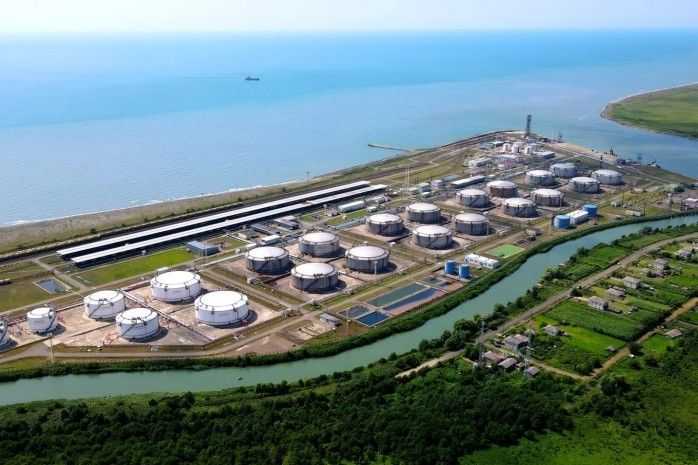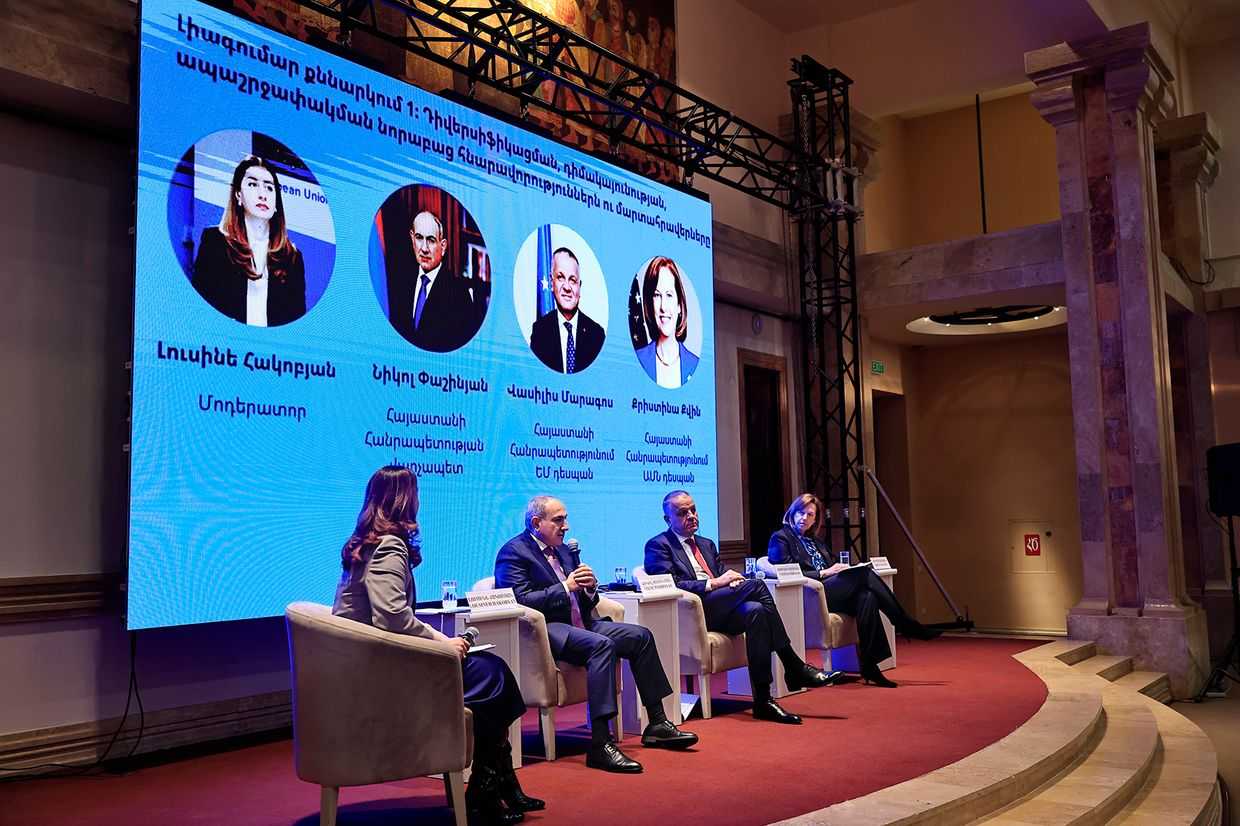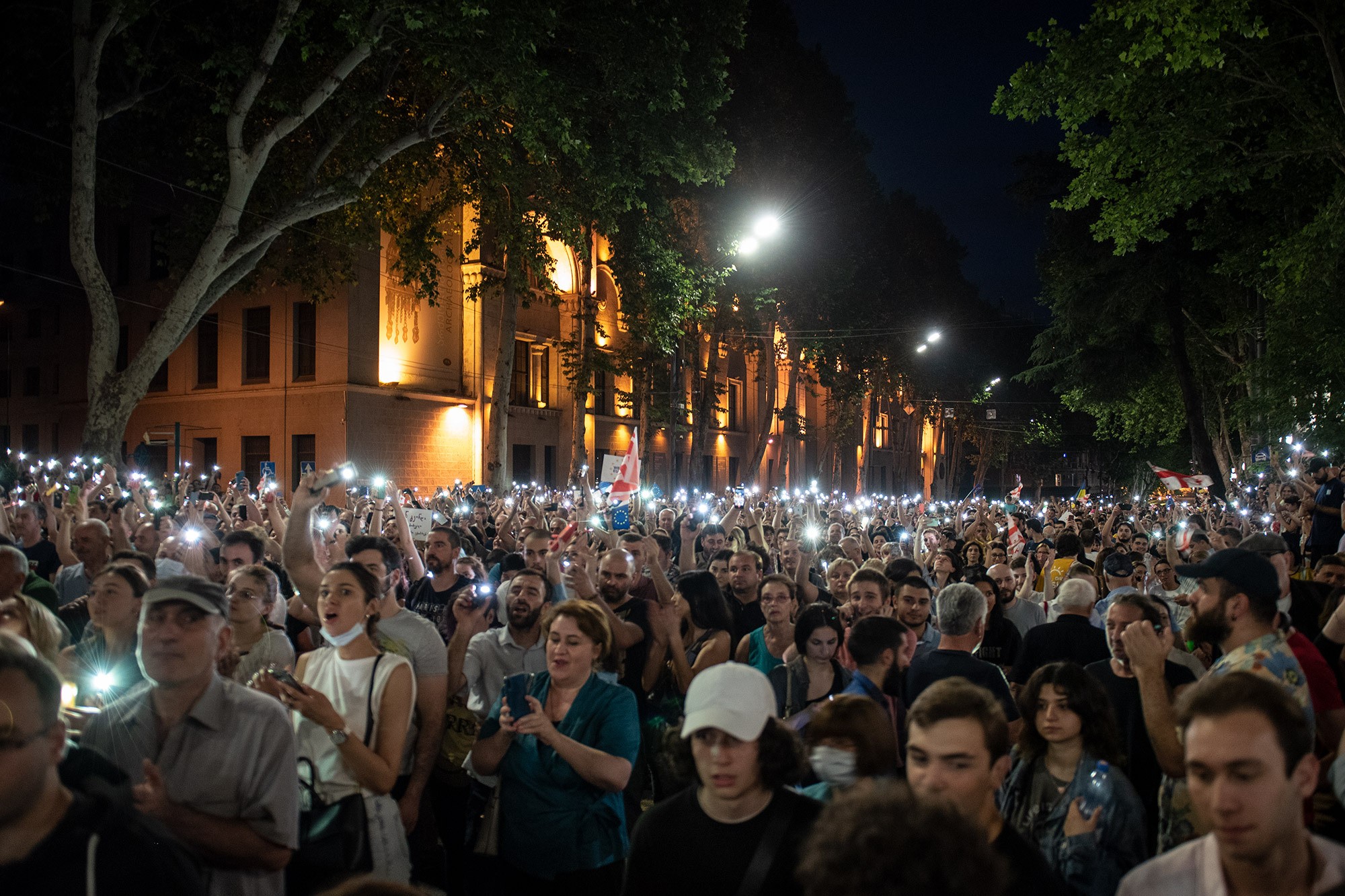
Tens of thousands of people gathered in central Tbilisi on Monday for a pro-EU demonstration, the largest demonstration in the country’s recent memory.
It came after the European Commission recommended on Friday that Georgia be denied EU candidate status, while endorsing Moldova and Ukraine’s applications. The commission recommended that Georgia be given conditions before being considered again for candidacy, echoing growing criticisms from Western countries of democratic backsliding from the country’s government.
The demonstration was organised by liberal group Shame, who said during the demonstration that the main obstacle to Georgia’s EU membership was Bidzina Ivanishvili, the founder of the ruling Georgian Dream Party.
They announced they were forming a movement made up of civil society groups, media organisations, opposition parties, student groups, and trade unions, which would issue a list of demands to the government. They said that if those demands were not met, they would engage in a campaign of mass civil disobedience nationwide.
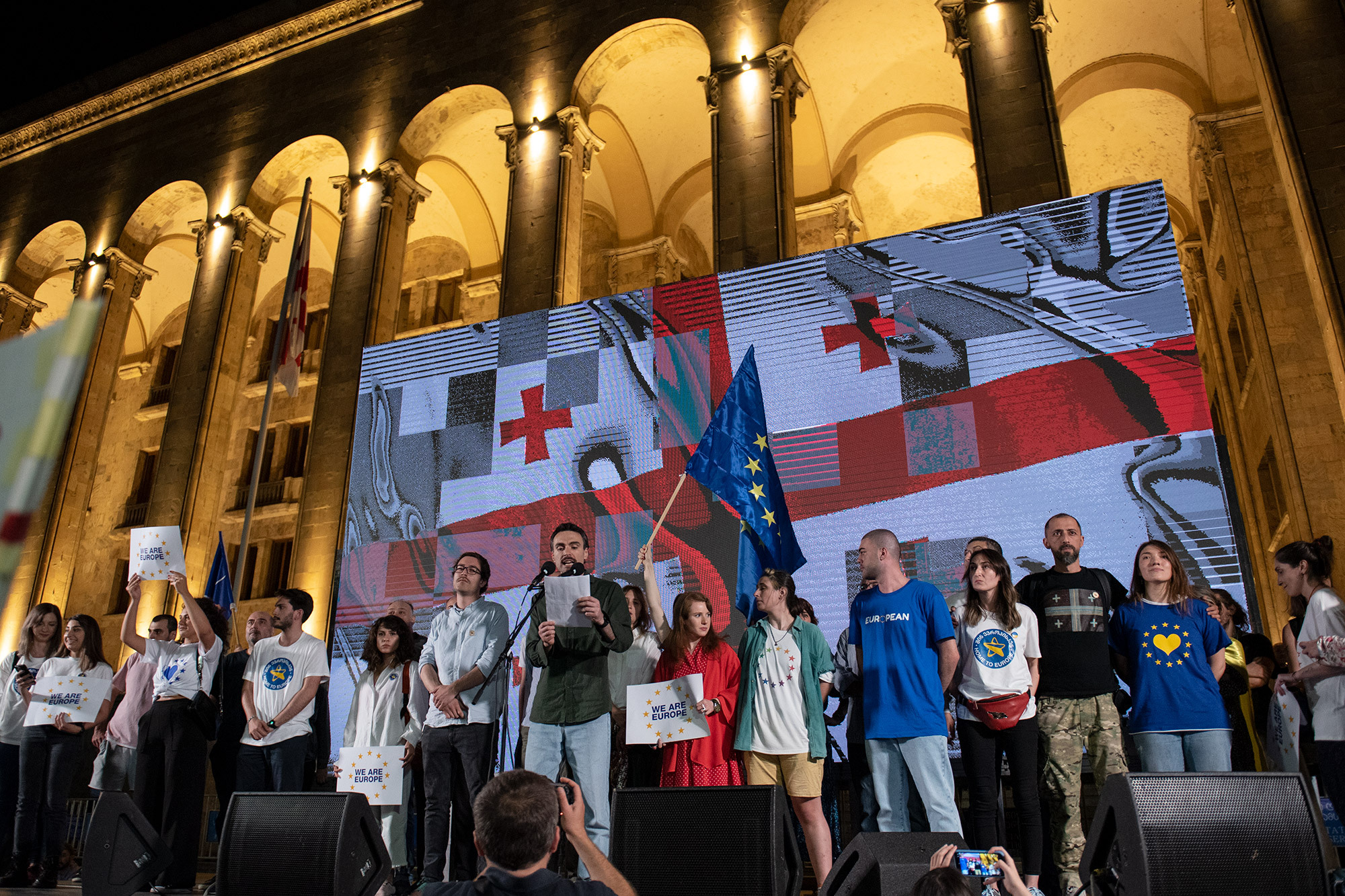
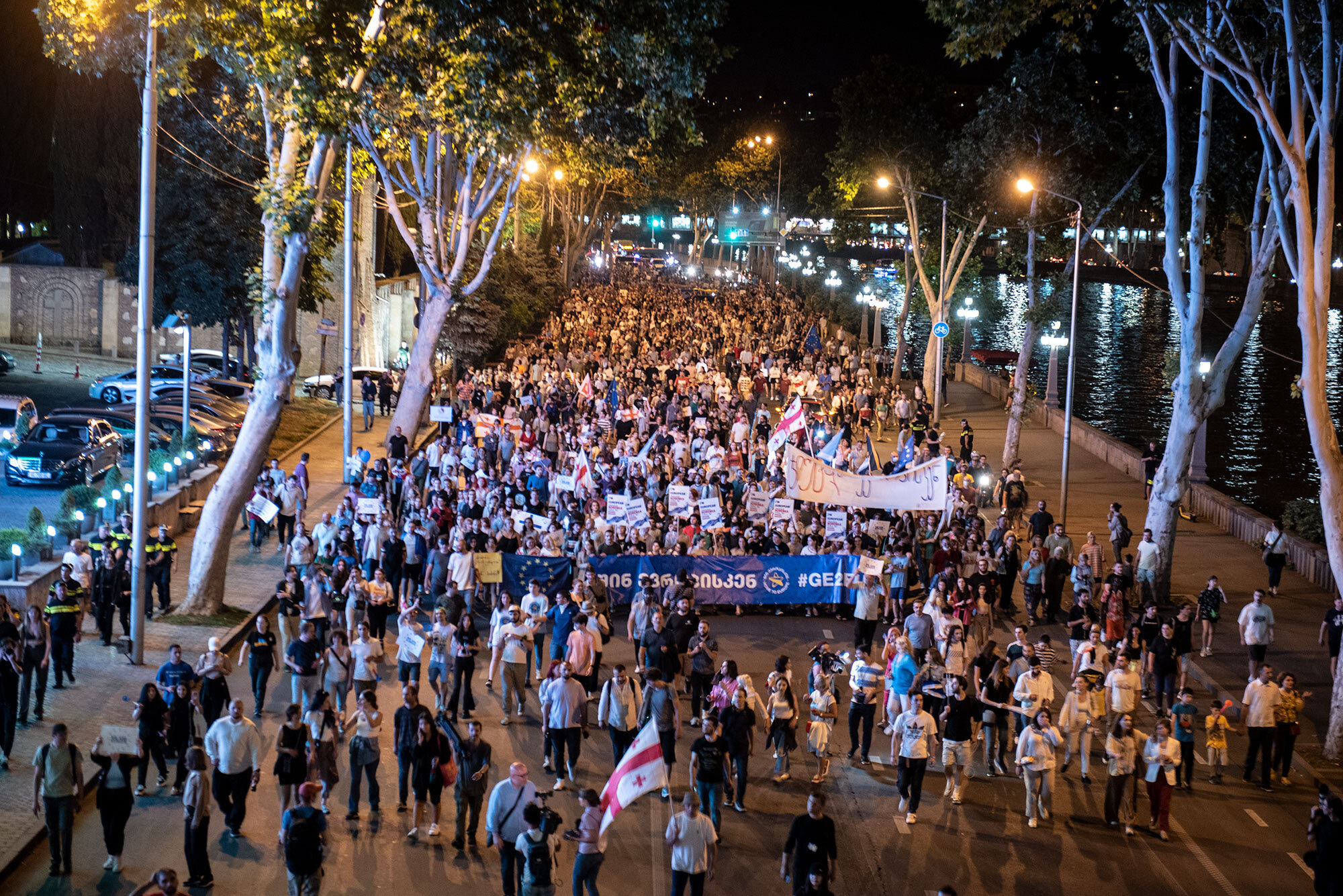
Several members of the European Parliament addressed the crowd in pre-recorded messages of support, with some taking aim at the Georgian Government.
Lithuanian MEP Rasa Juknevičienė accused the Georgian Government of ‘[doing it’s best] not to make the EU Commission’s recommendation favourable’. She told people to ‘remember those who pushed Sakartvelo [Georgia] back towards Russia’ when standing at the ballot box.
Demonstrations were also held in Batumi, Kutaisi and Zugdidi, and in eight European cities: London, Prague, Hanover, Paris, Budapest, Berlin, Hamburg, and Reykjavik.
Organisers said another demonstration would be held on Friday, when the heads of state of EU members are due to make a final decision on Georgia, Moldova, and Ukraine’s applications.
The demonstration was met with criticism from the ruling Georgian Dream party. After it was announced, several party leaders had repeated claims it was orchestrated by the opposition United National Movement party.
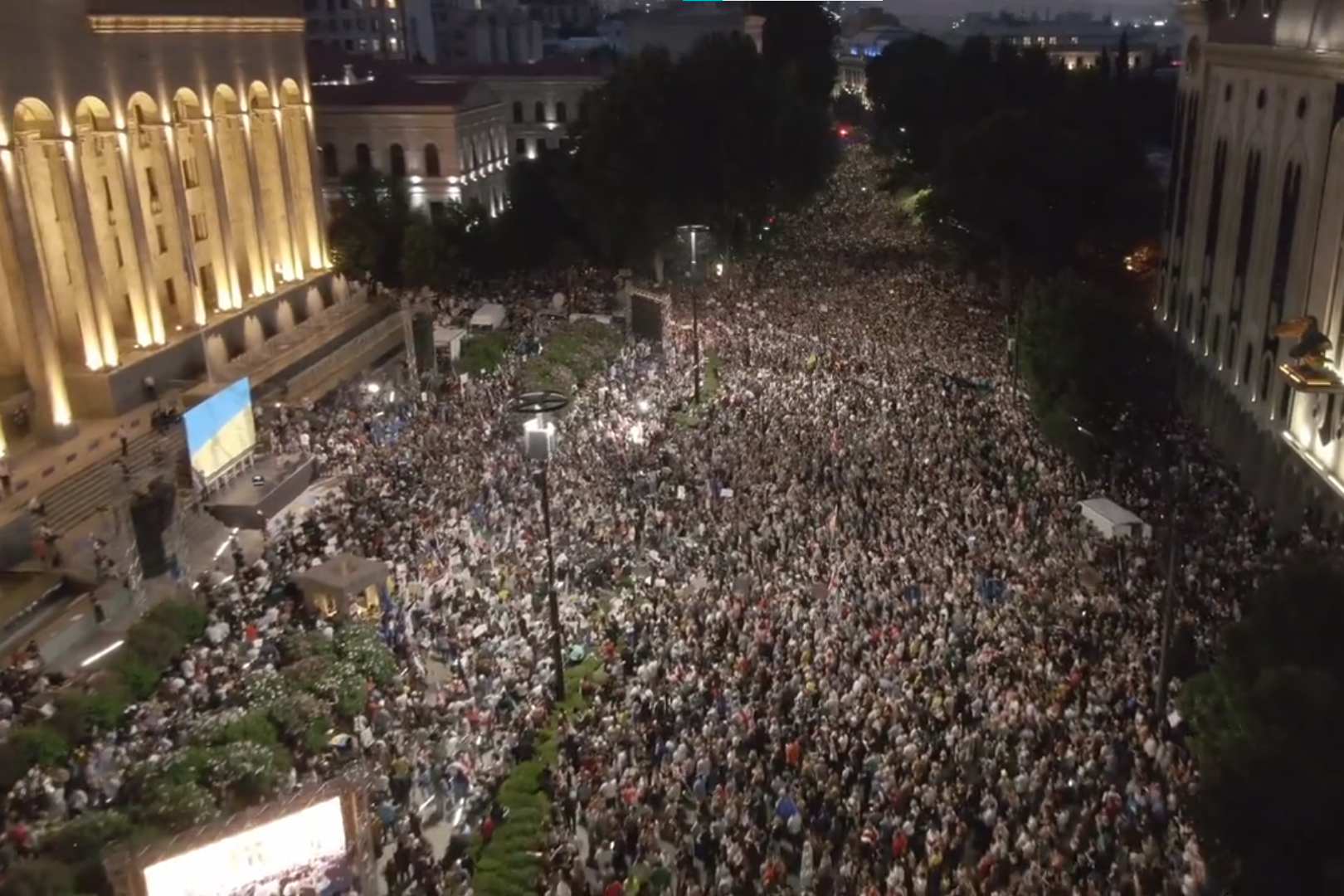
‘This rally is a rally of the National Movement; we should call everything by its name. People see everything and understand everything. If anyone thinks that they are misleading the public with any propaganda, they are very mistaken’, Tbilisi Mayor Kakha Kaladze said.
Georgia — no; Ukraine and Moldova — yes
In their recommendations on Friday, the EU laid out a number of conditions that Georgia would have to meet before they would consider reexamining the country’s membership application.
These included reforming the judiciary and anti-corruption agencies to ensure their independence, protecting the freedom of the press, and ‘de-oligarchisation’.
This is widely viewed to be a reference to Bidzina Ivanishvili, the billionaire founder of Georgian Dream. Government critics insist that Ivanishvili, who holds no official position, maintains undue influence over the government.
A scathing resolution passed by the European Parliament earlier in June called for the EU to consider sanctioning Ivanishvili for his ‘destructive role’ in Georgia’s politics and economy.
The ruling party has claimed that the oligarchs being referred to were Davit Kezerashvili, a shareholder in the independent TV channel Formula and Mikheil Saakashvili, the third President of Georgia, who is currently in prison.
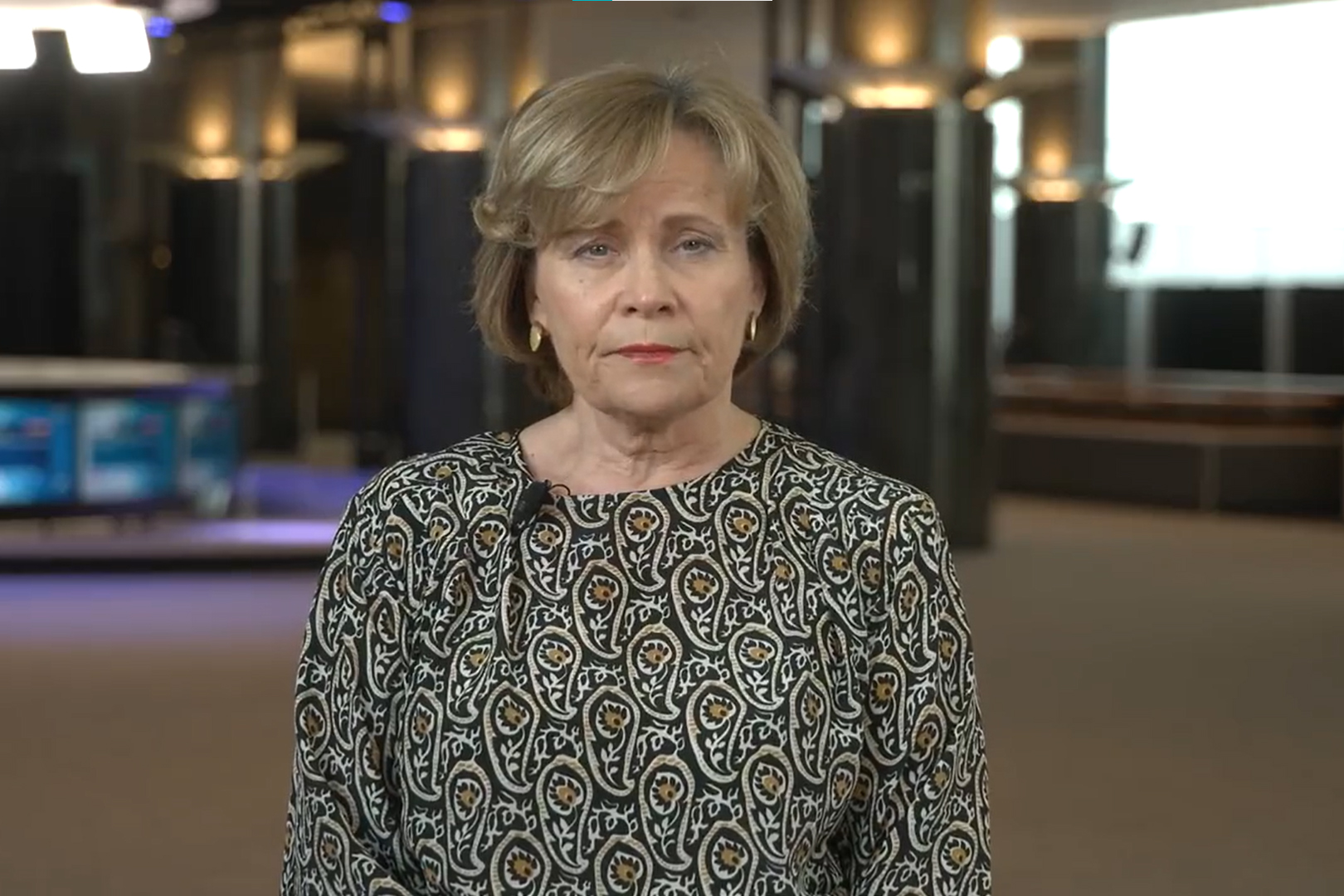
In an apparent response to the ruling party’s claims in her address to Monday’s protest, MEP Rasa Juknevičienė said that ‘everyone is well aware what oligarch [the commission] is talking about’.



